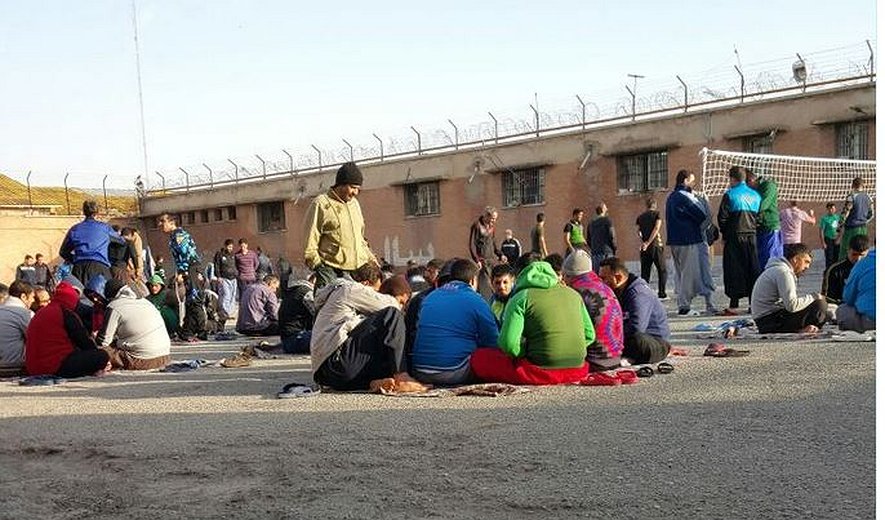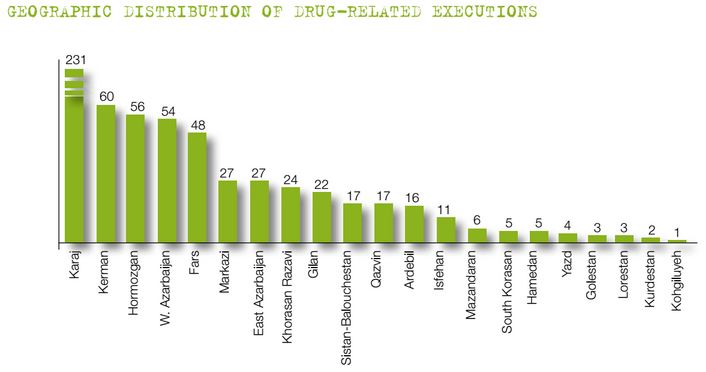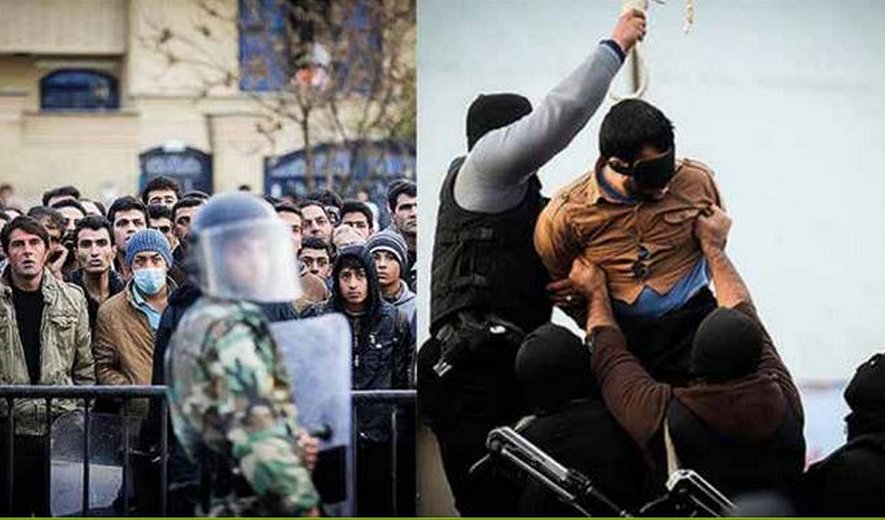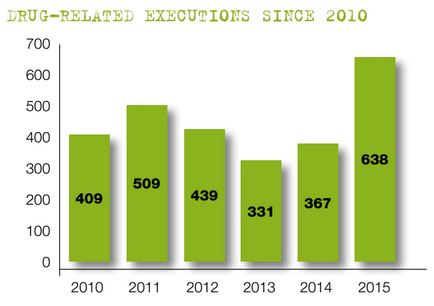UNODC Renews Cooperation with Iran Despite 638 Drug Executions in 2015

Iran has used the death penalty for drug related crimes since the inception of the Islamic Republic in 1979. Both crime rates and drug abuses in Iran have increased in the past three decades.
TO DOWNLOAD THE FULL REPORT CLICK HERE
Iran Human Rights (MAR 15 2016): The annual report by IHR provides a special focus on drug related executions in Iran and looks at the cooperation between the United Nations Office for Drugs and Crime (UNODC) and Iran against drug trafficking.
638 of the recorded 969 executions in 2015 were drug related, even though several top Iranian officials have admitted that executions have not reduced drug problems (including trafficking) in Iran. The number of drug executions in 2015 was the highest in more than 25 years, but despite this, the UNODC recently renewed its cooperation with Iran in the fight against drug trafficking. In December 2015 UNODC Executive Director Yury Fedotov announced a new $20 million funding settlement for anti-drug operations in Iran– a deal which represents a doubling in the agency’s support for Iranian counter-narcotics efforts. The UNODC’s new Iran Country Program is expected to run between 2015 and 2019, but the UNODC has not disclosed who will donate to the project, or what human rights safeguards will be imposed to prevent it facilitating drug related executions.
The above chart shows what charges led to executions in 2015
Most of the individuals who are sentenced to death in Iran for drug related offences are carriers belonging to marginalized groups in Iranian society, in particular the ethnic regions such as Baluchistan and Kurdistan. There is an overall lack of transparency in the Iranian judicial process, all those convicted of drug related charges were tried behind closed doors, and most of those executed on drug charges were not identified by name. Some of the issues those in Iran who are accused of drug offenses face are unfair trials, lack of access to a lawyer, and coerced confessions. Iranian authorities have claimed that many of those sentenced to death for drug related charges were involved in organized armed smuggling; however, investigations by IHR indicate that most of the individuals who were executed in Iran on drug related charges were not involved in armed drug smuggling. Witness statements given to IHR indicate that people arrested and accused of possession or trafficking of drugs are systematically tortured in Iranian detention centres until they agree to a confession.
More than 2,690 people were executed in Iran in the six years from 2010 to 2015. With more than 638 executions for drug related offenses, 2015 was the deadliest year since 1990.

UNODC COOPERATION WITH IRAN
The United Nations Office for Drugs and Crime (UNODC) has cooperated with Iran in the fight against drug trafficking for the past decades. Several European states provided millions of dollars worth of support through UNODC to counter-narcotics forces in Iran. In February 2015 UNODC Executive Director Yury Fedotov gave a speech in Tehran noting that “no country can compete with Iran when it comes to the amount of narcotics discovered and seized”. In early 2015 the human rights group Reprieve uncovered a formal UN evaluation of UNODC’s Iranian operations which warned of a potential “funding crisis” if donors withdrew support due to human rights concerns. The document suggested the human rights policy that UNODC published in 2012– calling for a “temporary freeze or withdrawal” in funding if drug offenders are executed – was neither “promoted nor implemented” in Iran. It also noted that “no action” was taken to prevent death sentences and executions as a result of the UNODC’s work.
INTERNATIONAL ATTENTION ON DEATH PENALTY FOR DRUG OFFENCES
International attention on the death penalty for drug related offences is relatively new. In recent years a growing number of global institutions and agencies have expressed public concern about Iran’s use of the death penalty for drug related offences, and called for an end to international cooperation with Iranian counter-narcotics efforts. In October 2015, the European Parliament passed a resolution by 569 votes to 38 majority condemning Iran’s high rate of drug related executions, and called on the European Commission and member States “to reaffirm the categorical principle that European aid and assistance, including to UNODC counter-narcotics programs, may not facilitate law enforcement operations that lead to the death sentences and the execution of those arrested”. The resolution follows decisions by individual donor states to withdraw funding from UNODC operations in Iran. In 2013, Denmark withdrew its support for such efforts, stating that “the donations are leading to executions”. The United Kingdom subsequently did the same, citing “the exact same concerns” as Denmark. Ireland also took similar action, with the then-Foreign Minister explaining that “we have made it very clear to the UNODC that we could not be party to any funding in relation to where the death penalty is used so liberally and used almost exclusively for drug traffickers”.
Iran Human Rights calls on the United Nations to freeze all cooperation involving law enforcement against drug trafficking until Iran removes the death penalty for drug offences from its law. “We call on Iran to impose a moratorium on the death penalty for drug related offences...We also ask the Iranian authorities to give special consideration to the most vulnerable groups in the Iranian society, including Afghan citizens,” says Raphaël Chenuil-Hazan, Executive Director of Ensemble Contre la Peine de Mort (ECPM), a human rights group that collaborated with IHR on its 8th annual report.




